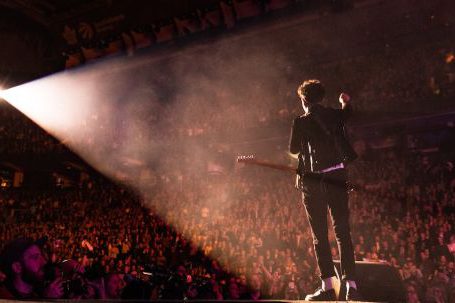Brazil is a country known for its vibrant culture, breathtaking landscapes, and warm-hearted people. But perhaps one of the most iconic and celebrated aspects of Brazilian culture is its world-famous carnival. With its colorful parades, samba rhythms, and elaborate costumes, carnival in Brazil is a spectacle like no other. In this article, we will explore the history, traditions, and significance of carnival in Brazil and understand why it holds such a special place in the hearts of Brazilians and visitors alike.
A Celebration of Joy and Unity
Carnival in Brazil is more than just a party; it is a celebration of joy, unity, and cultural diversity. This annual event takes place in the days leading up to Lent, a period of solemnity and reflection in the Christian calendar. It is believed that carnival serves as a way to indulge in worldly pleasures before the start of this introspective period. However, the roots of carnival in Brazil go much deeper than its religious association.
The Origins of Brazilian Carnival
Carnival in Brazil has its roots in the European tradition brought by Portuguese colonizers. These early festivities were marked by street parades, masquerades, and music. Over time, African traditions and rhythms were also incorporated, creating a unique fusion of cultures that is still evident in Brazilian carnival today. The African influence can be seen in the vibrant costumes, the infectious rhythms of samba, and the energetic dance moves that define this celebration.
Rio de Janeiro: The Carnival Capital
While carnival is celebrated throughout Brazil, the city of Rio de Janeiro is undoubtedly the carnival capital of the country. Every year, millions of people from around the world flock to Rio to witness the grandiosity of its carnival parade, known as the Sambadrome. This iconic event showcases the creativity and dedication of the samba schools, which spend months preparing for their performance. The Sambadrome is a dazzling display of color, music, and dance, where each school competes for the coveted title of champion.
Beyond Rio: Carnival in Other Brazilian Cities
While Rio de Janeiro may be the most famous, carnival is celebrated in various cities across Brazil, each with its own unique traditions. Salvador, in the northeastern state of Bahia, is known for its Afro-Brazilian influences, with street parties and blocos attracting millions of revelers. In Recife and Olinda, in the state of Pernambuco, carnival takes on a more traditional and folkloric character, with maracatu and frevo dances taking center stage. The diversity of carnival celebrations across Brazil showcases the country’s rich cultural heritage and regional differences.
The Impact of Carnival on Brazilian Identity
Carnival is not just a festive event; it is deeply ingrained in the Brazilian identity. It is a time when social barriers are broken, and people from all walks of life come together to celebrate. Carnival allows Brazilians to express their creativity, passion, and love for their country. It is a moment of cultural pride and unity, where people can forget their worries and immerse themselves in the pure joy of the festivities.
In Conclusion: A Celebration Like No Other
Brazil is a country that knows how to throw a party, and carnival is the ultimate testament to this. With its origins in European and African traditions, carnival in Brazil has evolved into a unique and enchanting celebration of joy and cultural diversity. Whether you find yourself in the bustling streets of Rio de Janeiro or the charming towns of Bahia, experiencing carnival in Brazil is an experience like no other. So put on your dancing shoes, don a colorful costume, and let the samba rhythms guide you through the vibrant world of Brazilian carnival.



